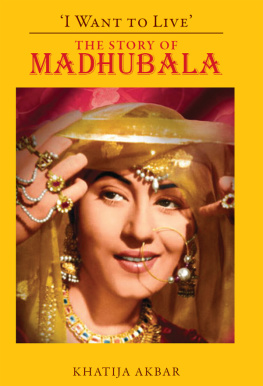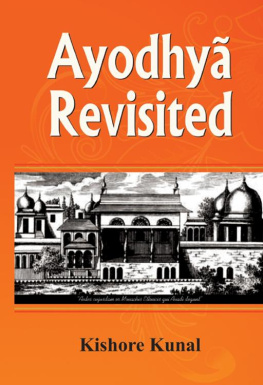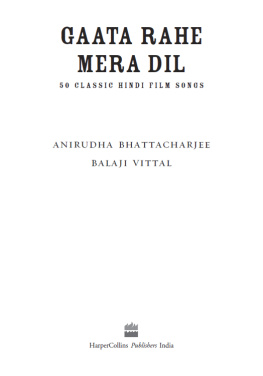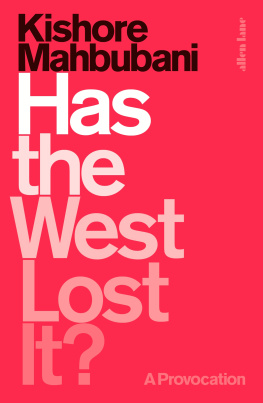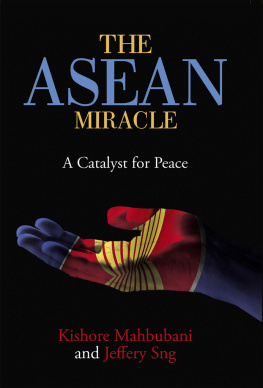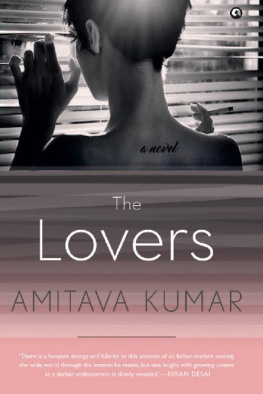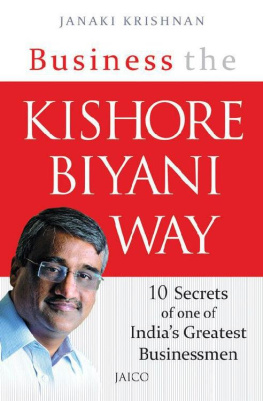Table of Contents
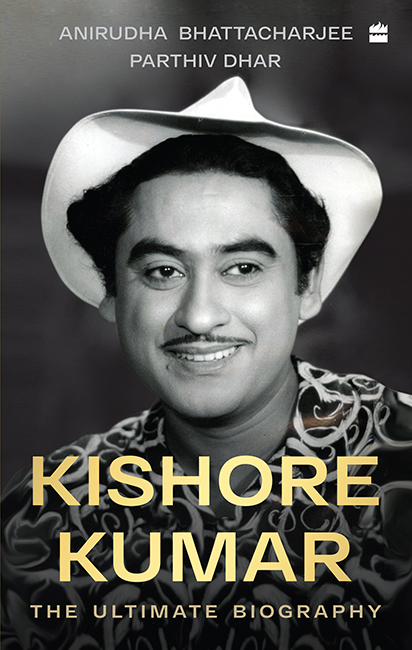

For the people of Khandwa
Contents
BOOK I
BHAIRAV: THE MORNING
BOOK II
POORVI: THE AFTERNOON
BOOK III
KALYAN: THE EVENING
I T TOOK TIME magazine a few years and several journalists to finally put Peter Sellers on their cover. This was not because Sellers was a difficult man to track down or speak to. It was just that every time they spoke to Sellers, they found a different person out there. They could not simply pin down his persona. His voice kept changing every time. So did his anecdotes. His looks, of course, kept changing too; after all, he was an actor. But, most mysterious of all, hethe man, as they kept discovering himkept changing. He was never the same person, the man you had met before and thought you had finally tracked down. Each Peter Sellers was unique, special, as interesting and as complete a person as they could have expected. Except that each Peter Sellers was different, very different, from the others.
Yes, I knew Kishore Kumar. He was a friend of mine, I could well say. A very good friend.
Or I could turn around and say, no, I never knew Kishore Kumar. I had only met him a few times. He was barely an acquaintance.
Both the above statements would be absolutely true. Its an either/or option. He gave you that option to decide whether he was your friend or not. He gave you that option to decide whether you knew him at all or not. And I, so many years later, choose to stay with the first option because he was exactly the kind of guy I enjoyed being friends with. And, as everyone may have told you by now, I do not make friends easily. In fact, to be truthful, I do not make friends at all.
And here I am, claiming Kishore Kumar was a friend. That was the mystery of the man and those few people he actually interacted with. Not professionally. (In Bollywood, you interact with hundreds every day. Its part of the job.) I am talking about interaction at a personal level. I seriously doubt if many people were part of his universe ever. Yes, he loved his wives dearlyall of them were remarkably beautiful and gifted womenand he loved his brothers, his sons, he loved R.D. and a few others with whom he worked; he loved singing, he loved the moviesespecially horror movies, of which he claimed he had the finest collection in the worldand he loved his trees, his home, his own infinite talent, of which he was very proud and, above all, his hard-earned money, which he claimed to protect more than anything else on earth. At least, he pretended to.
And that is where he drew the line. He rarely went beyond it.
That was his world, and he rarely stepped out.
He knew how fickle Bollywood friendships were. During his worst days, when work was slow to arrive at his door and everyone chose to ignore his talent to satisfy the whims of the stars they cast in their films, no one came to his help. When, during the awful Emergency years, the tax guys were set on him because he refused to sing at a huge high-profile Congress rally in Delhi, he calmly bore the brunt of their attacks. When the entire industry crawled when asked to bend, only he (and Dev Anand, quite separately) stood up and showed their spine. Vidya Charan Shukla, Indira Gandhis minister of state for Information and Broadcasting, tried to terrorize him by banning him from All India Radio. It didnt make a difference to him. He took it in stride.
What Kishore learnt from that experience was that when the chips were down, no onenot even those who pretended to fawn over himwere ready to stand by him. That is why when the Emergency was over and good times returned, he chose to play his game solo. He depended on no one. He trusted no one. He focused, instead, on what he was best at: singing and, occasionally, acting.
As a singer, he excelled. As an actor, he had a few successes and a bunch of failed films. Some of which he had produced himself.
If you have the time, try to track down the full text of his interview with me when I was editing The Illustrated Weekly of India. I had put him on the cover with a manic smile on his face and a skull in his hand. (He loved skulls, skeletons, ghosts, witches, poltergeists and all kinds of paranormal phenomena; stuff that went bumpity-bump at night). I had sent Tyeb Badshah to photograph him. That interview, which is floating around all over the internet and keeps getting published and republished on his every birthday, may help you gain insight into the man and what he thought of the world around him. You must hear him in his own words. No one else can do justice to his thoughts.
Kishore knew one thing: that he was meant for bigger things in life. Bollywood was too small for him. He knew that I had read my poetry to Ananda Shankars music for an EMI LP and was talking to Ravi Shankar about a second album. Since I wrote poetry in English, he asked me if I would write songs for him. He was very keen to have an album published overseas andsomewhat mistakenly, I believehe thought that if he sang in English, it would open up doors for him. Yes, he had thousands of fans out there, and he believed they would love to listen to such an album. I was not so sure. In any case, that album never happened.
Music publishers in the US were not particularly excited about Indian film music. The Guinness Book of World Records had told them that Lata Mangeshkar and Mohammed Rafi were squabbling over who had sung the most film songs in the world. But what actually interested them was the classical stuff. Ravi Shankar. Ali Akbar Khan. Their concerts were winning such big audiences by then that both settled down in the United States and started schools to teach Indian classical music to local American students. Chitresh Das went along to teach them kathak. And then came the Beatles. That changed the scale of their following. From thousands, it went up to millions. Ravi Shankar became iconic.
Kishore was hoping for a similar breakthrough. But it never happened.
It was not just the West. Even in India, Bollywood music was not considered for serious awards. I remember being on the jury for a music award that the Madhya Pradesh government gave to singers and musicians. If I remember right, it was called the Tansen Samman. It was a very prestigious national award and Ashok Vajpeyi, a fine poet and bureaucrat who looked after the cultural affairs of the state, presided over it and made sure the whole world noticed it. The classical genre was their natural choice, and the year I joined the jury, I discovered that they were already thinking of giving the award to K.J. Yesudas. Now, Yesudas was a fabulous singer. He sang both classical and devotional songsand also did playback for film songs in many languages.
Since this was a sort of departure from the pure classical list, I decided to test my luck and proposed that, for a change, they should consider Kishore as a man of remarkable musical talent that went beyond his Bollywood playback credentials. I also cited the fact that he had stood up bravely to the government during the Emergency years. For me, that was an important part of any artistes jobto stand up against a brutal regime. I wasnt sure others felt the same way, but I took the chance. At first, everyone looked at me askance, as if I had lost my marbles, till suddenly Kumar Gandharva, who was also a member of the jury, decided to openly endorse my choice. Seeing him join me, others like playwright Mohan Rakesh and parallel film-maker Mani Kaul switched their support to Kishore. Even Adoor Gopalakrishnan, the film-maker, who was also on the jury and may have earlier suggested Yesudass name, agreed that Kishore should get it. I think the Emergency bit helped. Everyone loves a victim. Naushad protested vehemently at first, and then said something rude under his breath and left the jury meeting. He never spoke to me after that.


